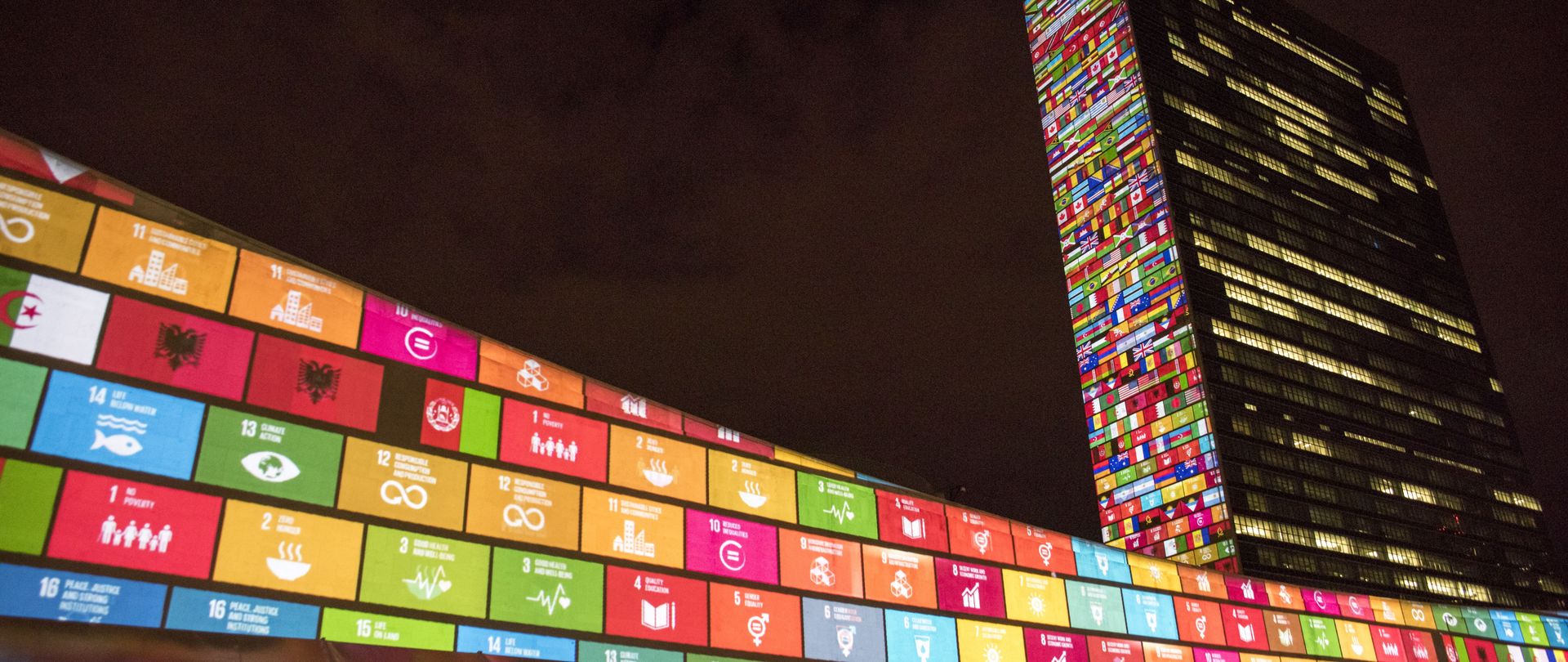
Projection of the Global Sustainable Development Goals (SDGs) onto the buildings of the UN headquarters in New York, USA
© Cia Pak, UN Photo
United Nations and Sustainable Development
»Sustainable development«, as the World Commission on Environment and Development (WCED) stated in 1987, »is development that meets the needs of the present without compromising the ability of future generations to meet their own needs«. With this definition the Brundtland Commission aimed at a responsible use of natural resources and a long-term protection of ecosystems while at the same time achieving economic and social development. In 1992, at the so-called »Earth Summit« in Rio de Janeiro, all member states of the United Nations (UN) committed to this guiding principle.
In 2012, the global community met again in Brazil (Rio+20) to mark the 20th anniversary of the 1992 UN Conference on Sustainable Development. UN member states agreed to negotiate new goals for sustainable development, known as the Sustainable Development Goals (SDGs). In September 2015, the heads of state and government of the UN member states adopted the »2030 Agenda for Sustainable Development«. Among other things, it contains the 17 SDGs with 169 targets. The High-Level Political Forum on Sustainable Development (HLPF) had already been established in 2013, following the Rio+20 conference. Delegations from UN member states meet there annually to review and drive forward the implementation of the 2030 Agenda and SDGs.
The chapters of this dossier
This dossier brings together all SWP publications on the topic of global sustainability governance. The core chapters are dedicated to the SDGs and the institutional framework of the United Nations. The latter also contains publications on the review of the High-Level Political Forum on Sustainable Development (HLPF). A 3-year project analysed the reforms that UN member states discussed for the HLPF between 2019 and 2021.
In addition, you will find contributions on multi-stakeholder partnerships for sustainable development with civil society and business, on resource conflicts, for example in the water-energy-food nexus, and on the positions of various stakeholders.
Further articles on climate policy, energy policy, the coronavirus crisis, digitalisation and cyber, refugees and migration, global health and global commodity markets can be found in separate dossiers.
Further information
Further information can be found on the UN’s »Sustainable Development Knowledge Platform«. Further information on the sustainability of global supply chains can also be found on the pages of the projects »Research Network Sustainable Global Supply Chains« and »International Raw Material Cooperation for Sustainable and Resilient Supply Chains«.